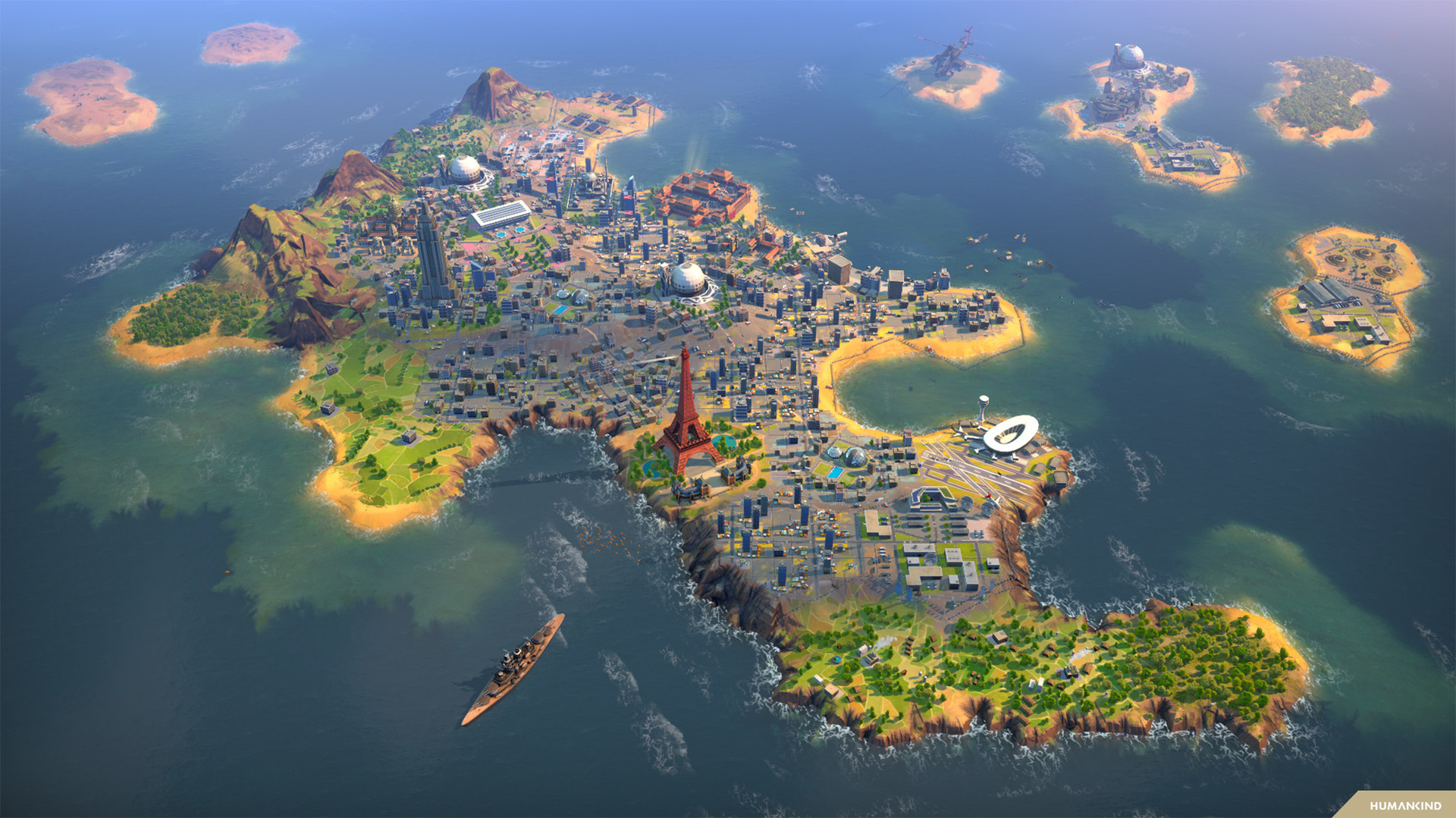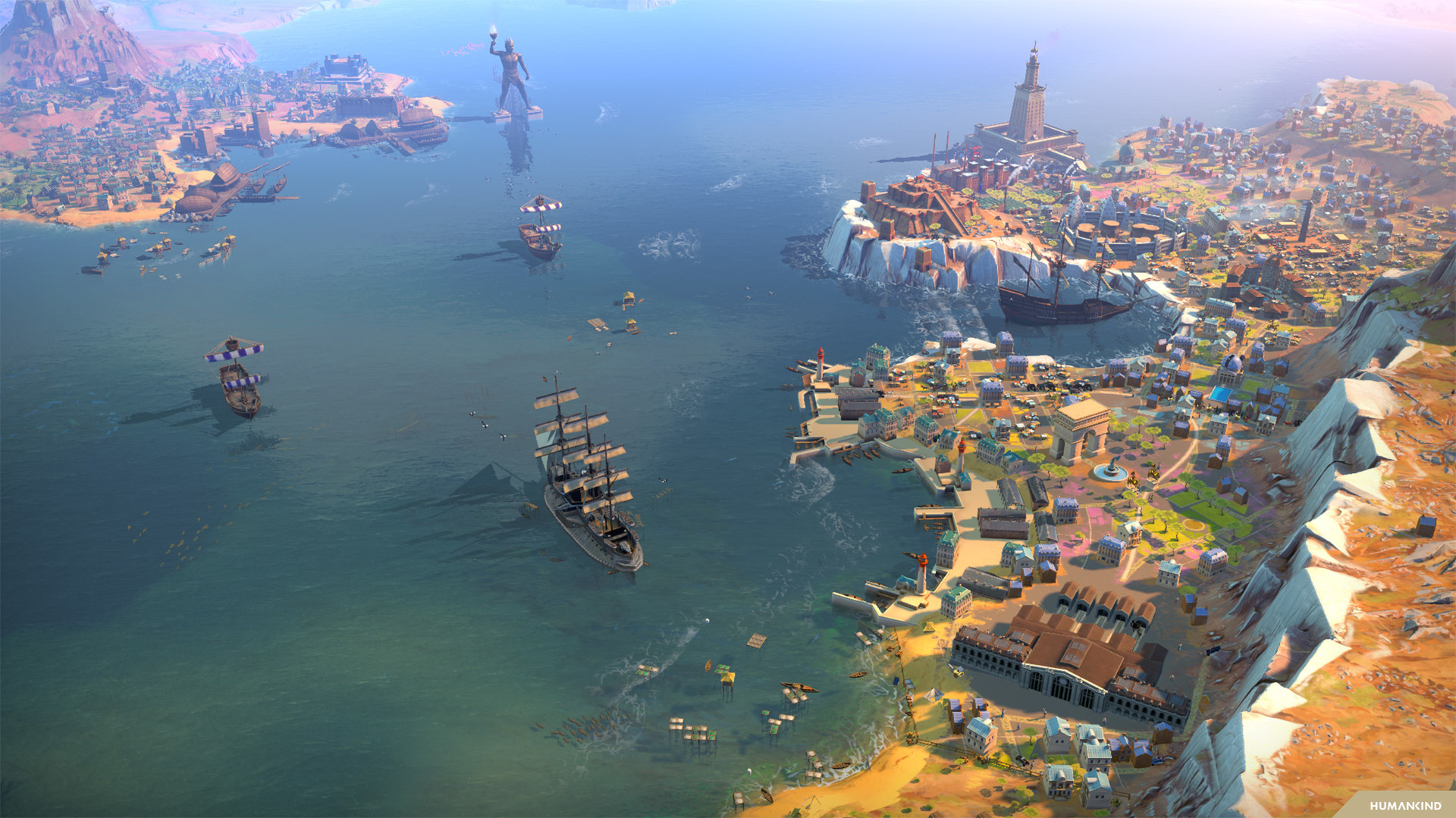I’ll admit, I haven’t played too many 4x games in the past. Sure, I’ve played a few Real-Time strategy games, and the occasional Turn-Based game, and sure, the idea of taking over the world with a giant army or through economics and sounded appealing, but I found myself often struggling to actually get anywhere in a game. I think the only time I managed to achieve anything was in the Star Wars version of Risk, where I took over most of the galaxy, over-extended my forces, and subsequently got crushed. I’m sensing a bit of a theme here…
Developed by Amplitude Studios and published by SEGA, Humankind will feel extremely familiar to those who enjoy titles such as the Sid Meiers Civilisation franchise. It features pretty much everything you’d expect from a game in which war isn’t the only answer, though admittedly, it is one of the more entertaining aspects of gaming. Unlike most games in this genre though, Humankind adds some less-than-subtle mechanics, and if you’re a fan of these games, you’re in for an absolute treat.
As would be expected, we start on a map with a simple scouting unit, we do a little exploring, and eventually, decide on a small section of land to call home. Assuming we’ve chosen well, we’ll have easy access to food and other natural resources, and we’ll start building our first settlement. It’s here that the formula starts to change. Traditionally, we’ll be picking our civilization before we start playing, but with Humankind, we don’t get to pick this until we’ve created a settlement, and each has its bonuses for the early game, but as we progress through the different eras, we are given the opportunity to evolve and explore other cultures. During my first playthrough, I went with the Ancient Egyptians, before trailing off to the Celts, and then the Teutons. Three completely different cultures, each with their specialties, perks, and drawbacks, and I was still able to make use of some of the aspects of the previous cultures as the game progressed.

As you explore the world, you’ll encounter other civilisations, each vying for power in one way or another and as would be expected, you can set up trade routes, create alliances, and fuel the fires of war. As you interact with other cultures you’ll be informed of any grievances that they have against you, as well as creating your own. This could be something as simple as trespassing on their territory, being in an alliance with their enemy, or even oppressing their people because they follow your culture’s religion. You’ll know exactly what that other culture is thinking as you enter negotiations, and you’ll have the opportunity to acknowledge these in one way or another.
You’ll want to be careful how you approach this though, as certain choices will hurt your relations, while others will have your opponent seeing you as a pushover. I took over huge areas of the map by demanding other cultures give me the cities that they were oppressing, only to have them swiftly retaliate by cutting trade or marching an army to my borders. Another leader simply laughed me off, seeing my army as weak and not worth their time as I demanded compensation when they crossed into my oceans.
Unlike other titles, utterly destroying your opponents doesn’t promise you the win. Defeated cultures will technically remain on the map in one way or another, and can often make a comeback when you least expect it. Humankind is won through fame – the civilisation that has been the most memorable. The Fame system shows you, at a glance, what your goals are to increase your fame based entirely on your culture, and where on the leader board you stand. It means that even a completely peaceful culture can still win the game, even if they’re constantly under attack from superior military forces. Once you’ve played 300 turns or every end-game technology is obtained, the game ends, and whoever has the most fame wins.

One of the biggest drawbacks I had when playing this style of game digitally is that there wasn’t a huge amount of animation. Humankind mixes things up and feels more like a computer game than most of its counterparts, as the pieces are animated as they move around the map. You’ll also notice little fight scenes when you do inevitably have to bear arms. The map itself feels like it has a bit of life to it, as you’ll encounter animals that roam the countryside, fireworks as a city celebrates, or flies buzzing around as you’re people suffer the plague. As you move from one era to the next, a beautifully rendered cut scene helps to explain when you’re leaving behind, and what you’re moving towards. It might not seem like that much, but it certainly helped Humankind be more visually appealing.
Throughout the cut scenes and at various points throughout the game, a very charming and incredibly witty voice narrates the scene, frequently commenting on the number of farms you’ve built or how those demands probably weren’t the best of ideas. As you enter negotiations with your neighbouring cultures, playful banter will turn into outright aggression or fearful acceptance. Even your units will respond verbally to any orders you give them. The gameplay is accompanied by a beautiful symphony themed around your active culture, perfectly reflecting your civilisation and helping to mix things up as the game progresses.
Sure, it still plays a lot like a board game, but that is what draws a lot of people to the genre. Humankind follows a similar structure to the multitude of other games available, but it brings its own style to the party, and those aspects help it stand out amongst the competition. The victory conditions have been simplified, but in a way that lets you play the game in whatever way you see fit. Sid Meier’s Civilisation has some very heavy competition in this one.

The Good
- One way to win, multiple ways to get there
- Animated game pieces
- The map has some life to it
- You know what you’ve done wrong when other cultures become aggressive
- Your civilisation will evolve and change as the game progresses
The Bad
- Can be a little confusing to begin with, as with most games in the genre








